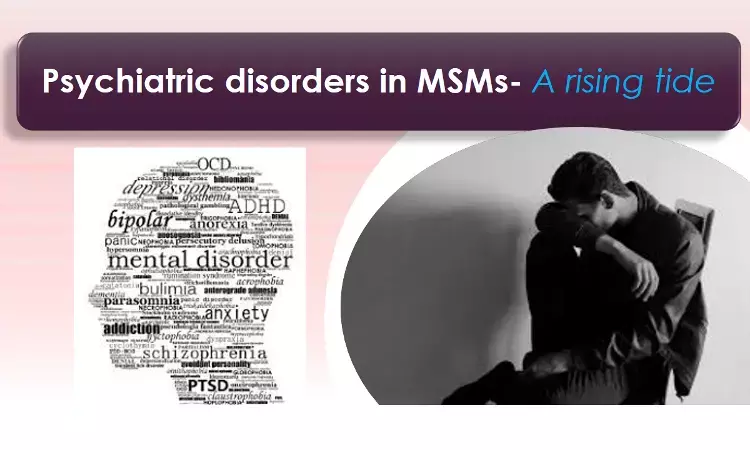- Home
- Medical news & Guidelines
- Anesthesiology
- Cardiology and CTVS
- Critical Care
- Dentistry
- Dermatology
- Diabetes and Endocrinology
- ENT
- Gastroenterology
- Medicine
- Nephrology
- Neurology
- Obstretics-Gynaecology
- Oncology
- Ophthalmology
- Orthopaedics
- Pediatrics-Neonatology
- Psychiatry
- Pulmonology
- Radiology
- Surgery
- Urology
- Laboratory Medicine
- Diet
- Nursing
- Paramedical
- Physiotherapy
- Health news
- Fact Check
- Bone Health Fact Check
- Brain Health Fact Check
- Cancer Related Fact Check
- Child Care Fact Check
- Dental and oral health fact check
- Diabetes and metabolic health fact check
- Diet and Nutrition Fact Check
- Eye and ENT Care Fact Check
- Fitness fact check
- Gut health fact check
- Heart health fact check
- Kidney health fact check
- Medical education fact check
- Men's health fact check
- Respiratory fact check
- Skin and hair care fact check
- Vaccine and Immunization fact check
- Women's health fact check
- AYUSH
- State News
- Andaman and Nicobar Islands
- Andhra Pradesh
- Arunachal Pradesh
- Assam
- Bihar
- Chandigarh
- Chattisgarh
- Dadra and Nagar Haveli
- Daman and Diu
- Delhi
- Goa
- Gujarat
- Haryana
- Himachal Pradesh
- Jammu & Kashmir
- Jharkhand
- Karnataka
- Kerala
- Ladakh
- Lakshadweep
- Madhya Pradesh
- Maharashtra
- Manipur
- Meghalaya
- Mizoram
- Nagaland
- Odisha
- Puducherry
- Punjab
- Rajasthan
- Sikkim
- Tamil Nadu
- Telangana
- Tripura
- Uttar Pradesh
- Uttrakhand
- West Bengal
- Medical Education
- Industry
Male homosexuals at higher risk for psychiatric disorders including suicide, finds LHMC study.

"Men who have sex with Men" (MSM) in India experience complex and multiple psychosocial challenges. A recent study published in Indian Journal of Psychiatry by Thirunavukkarasu et al. from Lady Harding Medical College, New Delhi has revealed that a significant burden of psychosocial problems exists in MSM population and throws light toward broadening the spectrum of health assessment among this vulnerable group.
India is home to about 3.1 million MSMs which is a very diverse group with subgroups, namely kothis (effeminate receptive partner), panthis (penetrative male partner), and double decker (both). Apart from high risk of transmission of HIV and sexually transmitted infections (STIs), striking evidence in the literature can be seen directing toward higher prevalence of psychological health issues such as substance abuse, partner violence, depression, and childhood sexual abuse among MSM.
Behavioral studies of mental health and depression among MSM in India are extremely sparse. The current study was conducted with an aim to assess the magnitude and predictors of psychosocial health-related problems including MSM registered in targeted intervention centers in Delhi.
In this cross-sectional study conducted among 235 MSMs, the burden of psychosocial health issues among MSM including depression, anxiety, substance abuse, and partner violence was assessed using semistructured questionnaire.
It was found that the prevalence of depression, anxiety, substance abuse, and partner violence was 45.1%, 37.8%, 27.6%, and 8%, respectively. Age (<24 years), education up to middle school, and being single had significant association with depression. Being sex worker as an occupation had a significant association with anxiety and intimate partner violence.
The proportion of kothi's was very high in the present study. The reason of higher proportion of kothi's could be due to the fact that it is easy for panthi's to hide their identity resulting in their low enrolment at targeted interventions (Tis). Furthermore, kothi's are feminine and form majority of MSM registered in TI. Nearly half of study subjects (45%) screened positive for depression.
The reason of higher prevalence of depression in this study may be due to factors such as stigma and discrimination toward MSM, lack of support from families, inability to carry on normal jobs due to harassment.
"The reason for the higher prevalence of depression in younger and those which lower levels of education could be attributed to worry and confusion about their sexual identity, sexual behavior, and lack of acceptance by themselves and also by the society", note authors in discussion. Only 8% of the study participants reported experiencing partner violence in the past 12 months.
The study reveals a significant burden of psychosocial problems and throws light toward broadening the spectrum of health assessment among this vulnerable group rather than limiting their domain to the diseases due to high-risk behavior.
"Owing to such a prevalence of the stated psychosocial issues, incorporation of counseling and regular assessment by a psychiatrist at the targeted intervention centers can help in early identification and management of such issues", conclude authors.
Source: Indian Journal of Psychiatry: https://dx.doi.org/10.4103%2Findianjpsychiatry.indianjpsychiatry_18_21
M.B.B.S, M.D. Psychiatry
M.B.B.S, M.D. Psychiatry (Teerthanker Mahavir University, U.P.) Currently working as Senior Resident in Department of Psychiatry, Institute of Human Behaviour and Allied Sciences (IHBAS) Dilshad Garden, New Delhi. Actively involved in various research activities of the department.
Dr Kamal Kant Kohli-MBBS, DTCD- a chest specialist with more than 30 years of practice and a flair for writing clinical articles, Dr Kamal Kant Kohli joined Medical Dialogues as a Chief Editor of Medical News. Besides writing articles, as an editor, he proofreads and verifies all the medical content published on Medical Dialogues including those coming from journals, studies,medical conferences,guidelines etc. Email: drkohli@medicaldialogues.in. Contact no. 011-43720751


